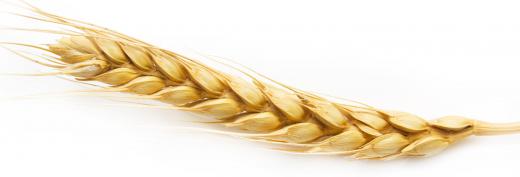 ...Hops, a main ingredient in beer.
...Hops, a main ingredient in beer. Posted on 08/03/2023 7:09:56 AM PDT by Red Badger
Beer, a fermented beverage made from grains and yeast, is a popular drink all over the world. There are many different types of beer, although they are usually broken up into two basic categories: ale and lager. The term lager is often interchanged with “beer”, especially outside of Germany, which is why some consumers make a distinction between beer and ale, rather than lager and ale. The difference between beer and ale has to do with the way in which is it brewed, and how the yeast ferments.
Before hops became widespread in Europe, ale was a beer created without the use of hops, while lager combined hops with the other ingredients. As hops began to pervade breweries, however, this distinction between beer and ale no longer applied. Brewers began to differentiate between beer and ale on the basis of where the yeast fermented in the cask: ale uses yeast that gathers on the top, and lager uses yeast that ferments on the bottom.
 ...Hops, a main ingredient in beer.
...Hops, a main ingredient in beer.
Beer and ale both start out in the same way. Barley or another type of grain is malted, which means that it is sprouted in a moist environment and then dried. Brewers yeast is added and it ferments the beverage, usually very quickly, before the malt has a chance to spoil. Other ingredients such as hops are added to increase the depth of the flavor, and to temper the sweetness of the malt.
 ...Barley, a common ingredient in many beers.
...Barley, a common ingredient in many beers.
Ale is fermented at a higher temperature, and matures more quickly as a result. The yeast rises to the top as the beer ferments, creating a yeasty froth on the top of the beer cask. Lager is fermented at a lower temperature, and the yeast settles to the bottom as the beer matures. Lagers were traditionally brewed in German caves, which got quite chilly during the winter especially.
 ...A stout, a brown ale, and a pilsner.
...A stout, a brown ale, and a pilsner.
Beer and ale can usually be separated by taste as well as brewing process. Ale has a brighter, rich, more aggressive, hoppy flavor, and often has a higher alcohol content as well. Lager has a smooth and mild flavor with a clear, clean finish. Examples of ale include any sort of beer with “ale” in the name, porters, stouts, and many German specialty beers such as Abbey ales. Lagers include pilsners, dopplebocks, and Oktoberfests.
 ...Malt extract is known for its use in brewing beer.
...Malt extract is known for its use in brewing beer.
Beer and ale also have different distribution patterns. Ale is found in the Belgium, the British Isles, and many former British colonies including the United States and Canada. Lager is widely served in Germany and other European nations, although some German specialty beers are actually ales. Many consumers have difficulty distinguishing between beer and ale on the basis of taste alone, as many modern breweries incorporate a variety of brewing techniques and flavors in their beers.
Had a girlfriend who used to dress up like that. Should have held on to that one.
There is no beer but pilsner.
Seems the Germans planted their beer seeds in Mexico, too. Also polka music...
That’s funny, because basically all of our major brands are from Germans.
I’m a bit biased, but all my life it seems if anything, beer was a German thing. Little associated with any other people.
Imported is very different from that sold in Germany. No real beer, stout, ale etc sold in the US - just flavored water with a drop of alcohol. US brands differ by the amount of water and size of the dab. local or imported. must meet US standards for flavored water with carbonation and drops of alcohol.
Well I’m glad I never liked any alcohol.
Celebrated my 21st birthday at Octoberfest in Munich, and the next nine months in Denmark. Couldn’t drink an Anerican beer for over a year. Glad U.S. craft brewing began shortly after that.
Definitely.
Especially if she can make a good sandwich.
This thread is useless without...pitchers!
I like to think of beer (and wine) as the main method utilized in western culture to avoid death from water borne diseases like dysentery. Beers and ales have just enough Alcohol content to kill most of the germs. It has the additional benefit or side effect of getting you a little drunk.
Disclaimer: Opinions posted on Free Republic are those of the individual posters and do not necessarily represent the opinion of Free Republic or its management. All materials posted herein are protected by copyright law and the exemption for fair use of copyrighted works.